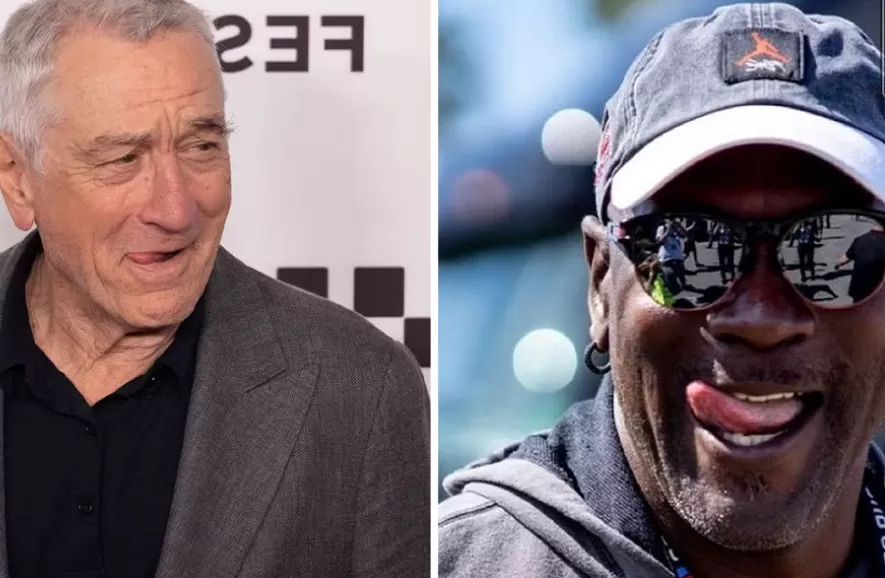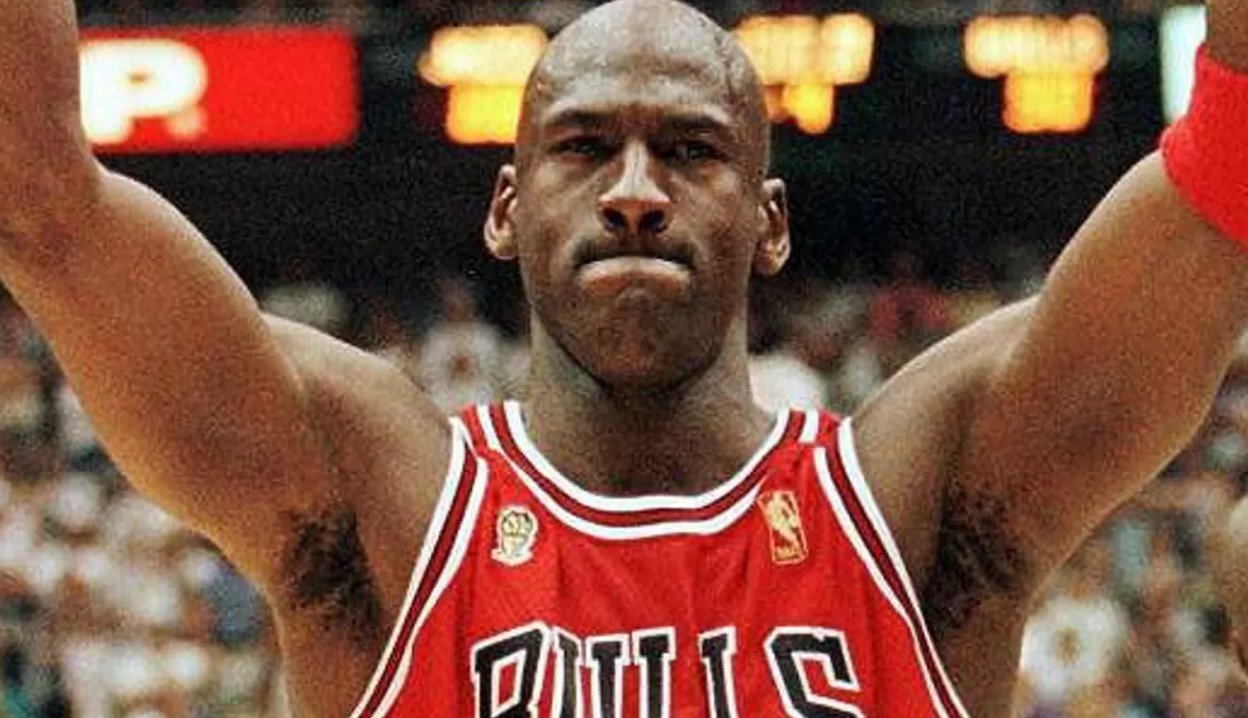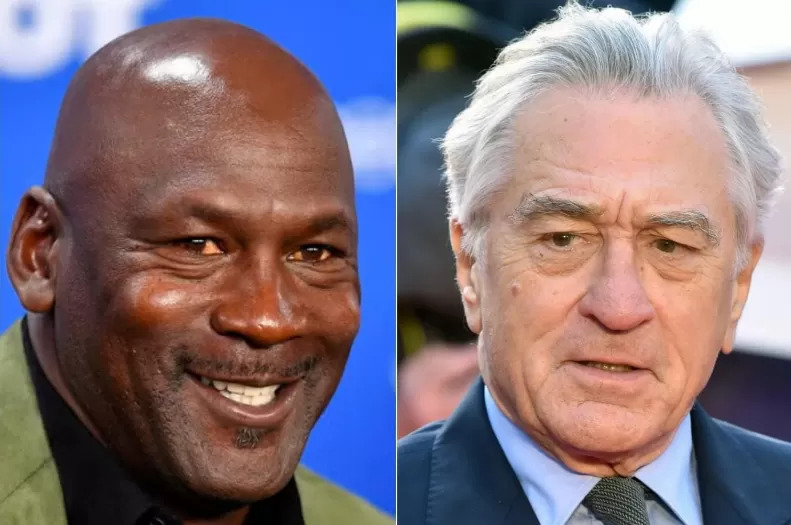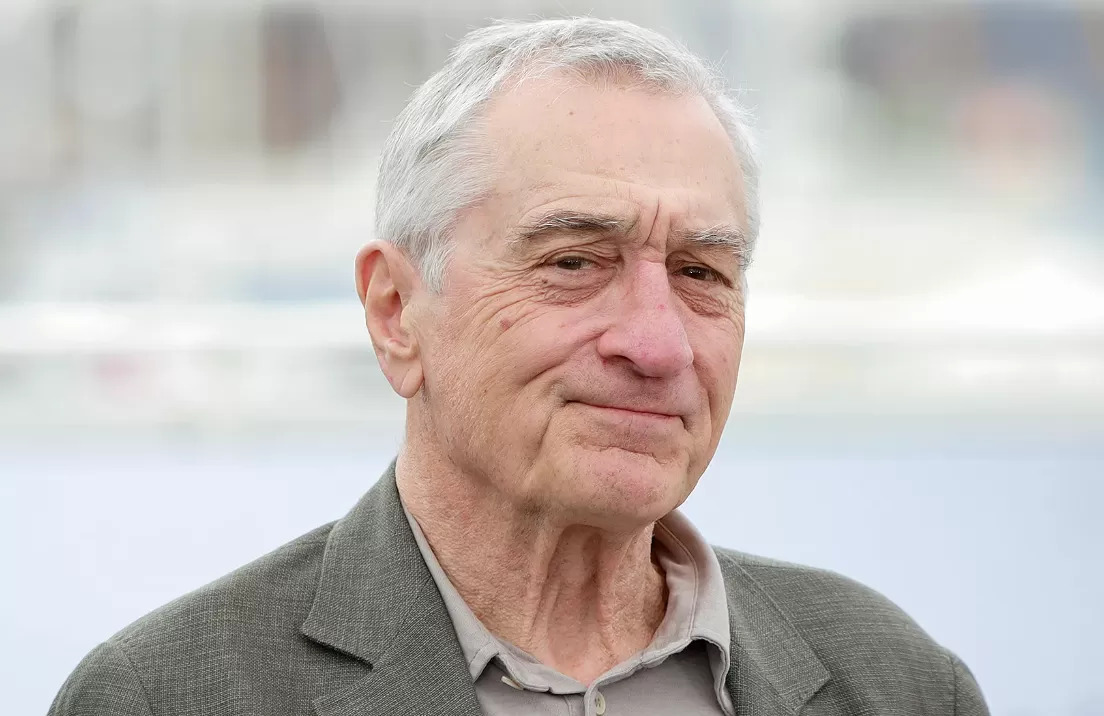In a surprising turn of events, basketball legend Michael Jordan has openly refused to participate in a commercial alongside Hollywood icon Robert De Niro.

This decision has sparked widespread discussion, illuminating the complex interplay of personal and political beliefs among celebrities today.
The commercial in question, intended to promote a major brand, aimed to convey a message of inclusivity and social justicevalues often encapsulated by the term « woke. »
The campaign was designed to bridge the realms of sports and entertainment, leveraging the star power of figures like Jordan and De Niro to amplify its impact.
Michael Jordan, renowned for his prowess on the basketball court and generally known for avoiding public controversies, has taken a rare step into the spotlight of celebrity disputes.

His decision not to participate in the commercial was not driven by political disagreements but rather, a personal aversion to Robert De Niro.
Central to the controversy is Jordans straightforward admission: I dont like him, he reportedly said about De Niro. This candid revelation has left many speculating about the specific reasons behind his strong sentiment, as Jordan did not elaborate further on the nature of his dislike.
Robert De Niro, a celebrated actor known for his two Academy Award wins, has also become notable for his vocal political opinions, particularly his criticisms of former President Donald Trump.
While De Niros political stances have endeared him to many, they have also made him a polarizing figure within the entertainment community. It remains unclear whether Jordans distaste for De Niro is tied to these political expressions or if it stems from other personal interactions.

The brand organizing the commercial now finds itself in a precarious situation, having planned to capitalize on the influence of both Jordan and De Niro.
With Jordans departure from the project, the future of the campaign hangs in the balance. The company has not yet released an official statement regarding how it plans to proceed without one of its key endorsers.
The fallout from Jordans decision has elicited a range of reactions from the public and industry insiders alike. Some applaud Jordan for standing by his personal principles, viewing his move as a stand against the increasing politicization of celebrity endorsements.
Others, however, see it as a missed opportunity to foster unity and promote a message of inclusivity.

Debates and discussions have flourished on social media, with hashtags like #JordanVsDeNiro and #WokeCommercial trending.
Comments vary from support for Jordans right to choose his collaborators to disappointment over his refusal to collaborate based on personal differences.
This incident not only underscores the tensions that can arise when celebrities with differing views are brought together but also highlights the broader challenges brands face in navigating celebrity endorsements in an increasingly politicized environment.
For Michael Jordan, this instance marks a significant public stance on a personal issue, demonstrating that even figures known for their focus and professionalism can decide to draw lines when it comes to personal values and beliefs.
For De Niro, this may reinforce his image as a divisive figure in Hollywood, depending on how his outspoken nature is perceived in the aftermath of Jordans refusal to collaborate.